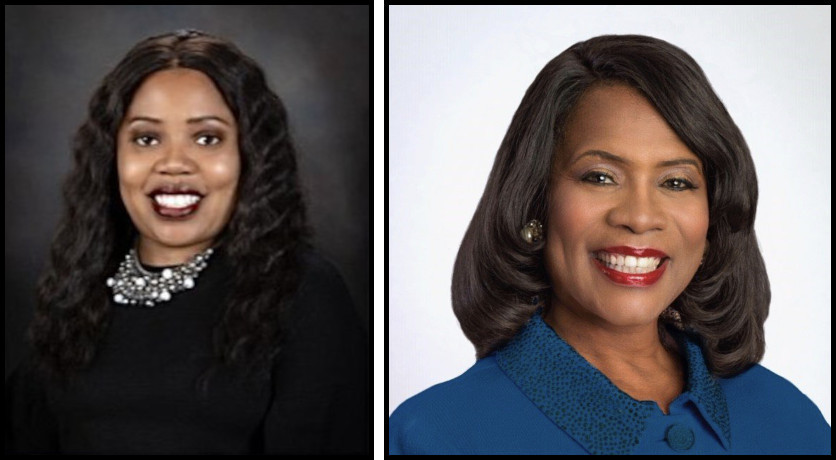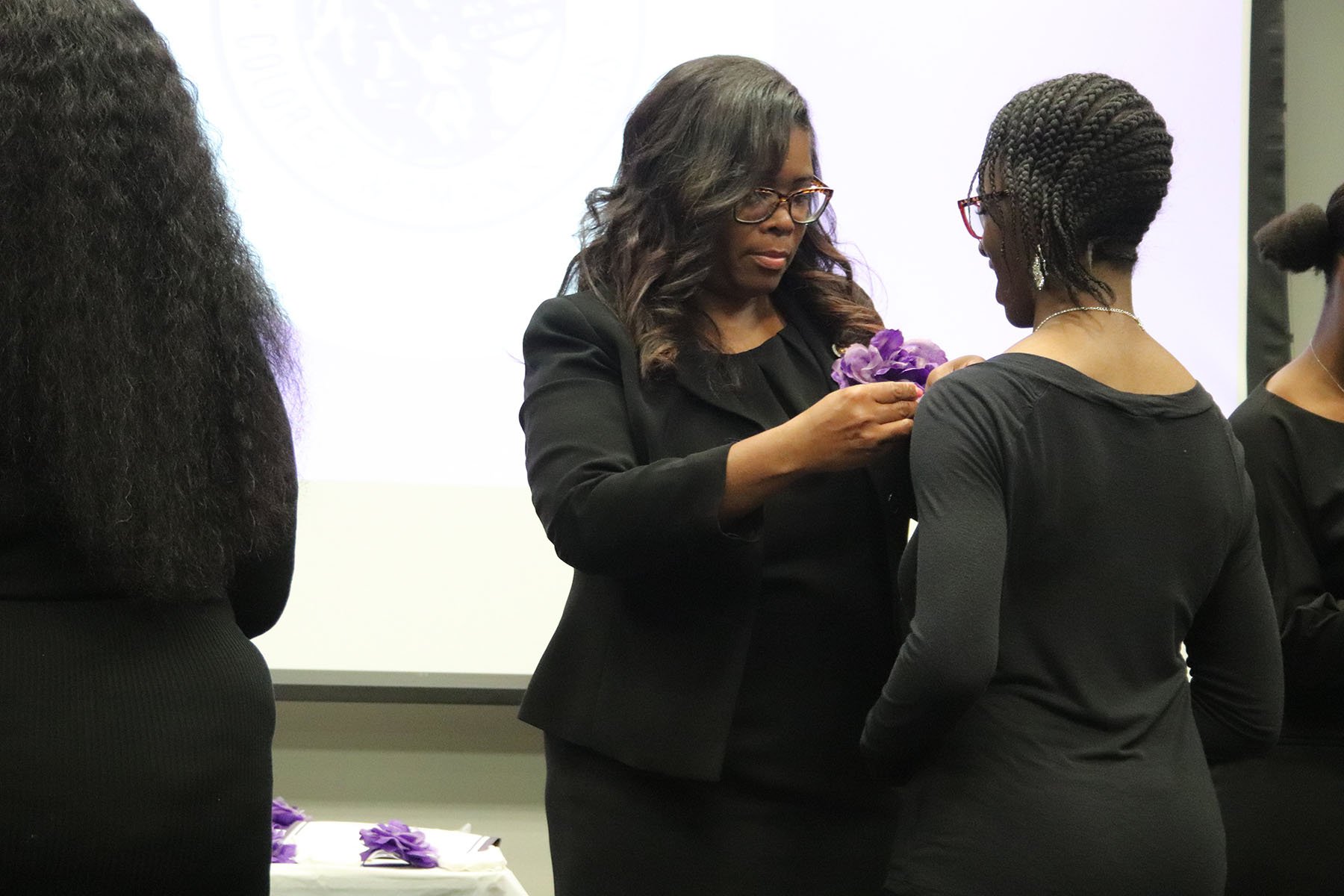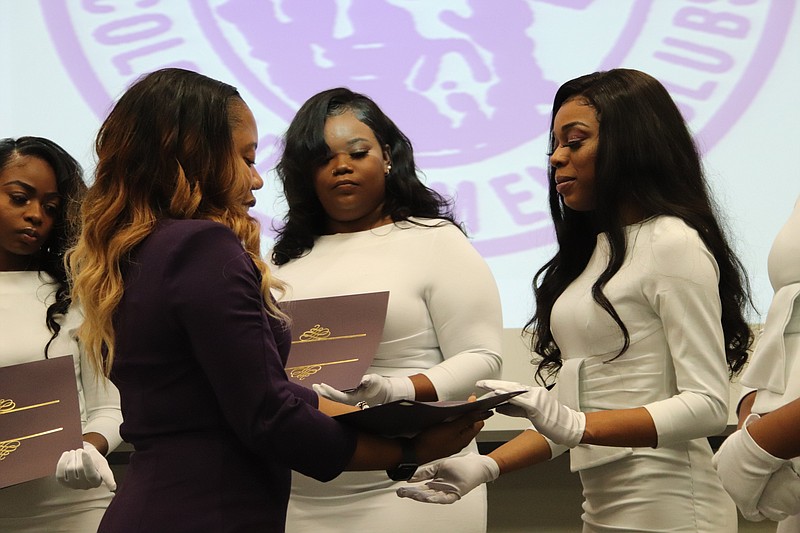It could be called the letter heard around the world ... at least, the world of Black American women at the time, according to the historical account of the birth of the National Association of Colored Women's Clubs.
The year was 1895. Florence Balgarnie of the English Anti-Lynching League sent a letter to James W. Jacks, president of the Missouri Press Association. Balgarnie requested that American journalists use their words to try to help bring a halt to the lynching of Black people.
"Jacks' now infamous reply to her letter, attacked African Americans and specifically, Black women," according to the history posted at nacwc.com. Jacks referred to them as "prostitutes" as well as "natural liars and thieves."
"Equivalent to the 'shot heard round the world' triggering the American Revolution," Jacks' letter "catapulted black women into action," according to the history. "A national 'Call to Confer' sent to women's organizations of color was issued by Josephine St. Pierre Ruffin, leader of Boston's New Era Club."
That call was answered via a conference held the following year in Washington — a conference drawing self-improvement and charitable organizations that had been in existence well beforehand. Said organizations were led by such women as Harriet Tubman — yes, that Harriet Tubman — and Helen Appo Cook, who both went on to be founders of the National Association of Colored Women's Clubs.
Sojourner Truth, Anna Julia Cooper and Ruffin were also among the club representatives "whose lives were devoted to the struggle to free people of color from the bondage of slavery, illiteracy, and prejudice in an unforgiving world that treated them as less than human," according to the history. The organization was formally incorporated July 26, 1904, in St. Louis.
Now the Washington-based organization will celebrate its 126th anniversary and 63rd biennial convention Wednesday-July 24 in Little Rock.
 Andrea Brooks-Smith (left), president of the National Association of Colored Women's Clubs Inc., and Dr. Glenda Glover, president of Tennessee State University and guest speaker for the 63rd biennial convention of the NACWC, which will be held in Little Rock July 24.
Andrea Brooks-Smith (left), president of the National Association of Colored Women's Clubs Inc., and Dr. Glenda Glover, president of Tennessee State University and guest speaker for the 63rd biennial convention of the NACWC, which will be held in Little Rock July 24.
63RD CONVENTION
The convention — at which women and children from across the country are expected to gather — will kick off with a 9:30 a.m. Grand Opening Ceremony on Thursday in Salon D of the Doubletree by Hilton Little Rock, 424 W. Markham St. This event is open to the public.
Highlighting the conference is the group's Night of Excellence, honoring Dr. Joycelyn Elders, former U.S. Surgeon General, and featuring guest speaker Dr. Glenda Baskin Glover, president of Tennessee State University in Nashville, Tenn., and international president and chief executive officer of Alpha Kappa Alpha Sorority Inc. Glover is a certified public accountant, a lawyer and one of two Black women in the country to hold the combined credentials of doctor of philosophy/certified public accountant/juris doctorate. (The banquet also was open to the public, but ticket sales have ended.)
Holding the gavel will be the association's 30th national president, Arkansas native Andrea Brooks-Smith, the organization's youngest president since 1900 and the first from the Natural State.
Members of the National Association of Colored Women's Clubs are "dedicated to uplifting women, children, families, the home and the community through service, community education, scholarship assistance and the promotion of racial harmony among all people, so that those we serve are better able to take their proper and rightful place in society as citizens, community leaders, parents and family members," Brooks-Smith says in email interview, quoting the organization's mission.
SHARING the MISSION
The association has a presence in 45 states with local, state and affiliate chapters, including the Arkansas Association of Colored Women's Clubs. Any organization or individual that shares the national association's mission and objectives is eligible for membership.
"What has contributed most to our success and longevity is the work that we continue to do in our communities; and the work that is still needed," Brooks-Smith says, citing violence, racism, poor education and poor socioeconomic conditions that still exist in communities of color throughout the country. She names objectives stated at the national association's inception, objectives whose relevance continues:
◼️ To work for the economic, moral, religious and social welfare of women and youth.
◼️ To protect the rights of women and youth.
◼️ To raise the standard and quality of life in home and family.
◼️ To secure and use our influence for the enforcement of civil and political rights for African Americans and all citizens.
◼️ To promote the education of women and youth through the work of the departments.
◼️ To obtain for African American women the opportunity of reaching the highest levels in all fields of human endeavor.
◼️ To promote effective interaction with the male auxiliary.
◼️ To promote interracial understanding so that justice and good will may prevail among all people.
"I am probably biased but, in my opinion, we best carry out the vision of Harriet Tubman and others through our youth initiative," Brooks-Smith says. She cites the group's youth organization, whose members range in age from 5-17 years; and its Young Adult Department for women ages 18-25, which is manifested on the campuses of Philander Smith College and the University of Arkansas at Pine Bluff.
 Takeesha Bryant-Avery — currently president of the Frances Harper Charity Club and Arkansas Association of Colored Women’s Clubs Third Vice President — pins a corsage on SaMiyah Turner at the pinning ceremony for new members of the Mary Louise Williams Collegiate Chapter, National Association of Colored Women’s Clubs, held Nov. 19, 2021, at Philander Smith College in Little Rock. (Arkansas Democrat-Gazette/Helaine R. Williams)
Takeesha Bryant-Avery — currently president of the Frances Harper Charity Club and Arkansas Association of Colored Women’s Clubs Third Vice President — pins a corsage on SaMiyah Turner at the pinning ceremony for new members of the Mary Louise Williams Collegiate Chapter, National Association of Colored Women’s Clubs, held Nov. 19, 2021, at Philander Smith College in Little Rock. (Arkansas Democrat-Gazette/Helaine R. Williams)
THROUGH THE RANKS
A native of Forrest City in northeastern Arkansas and a 1998 graduate of Forrest City High School, Brooks-Smith is herself a product of the national association's youth organization, having joined when she was only 5. She's the first to have come up through the ranks to become national president.
"Our youth organization focuses on educating youth and [familiarizing] them with the responsibilities of service, ideals of self-empowerment and the mission agenda of NACWC," Brooks-Smith says.
Why has the word "Colored," to which some might now take exception, followed the organization from the 19th century to now?
"We decided to keep 'Colored' as a part of our name because we recognize and honor the sacrifice that our foremothers made to create this organization," Brooks-Smith says. "In doing so, it allows us to remember who we were in 1896 and the impetus for our founding."
Bringing the convention to Little Rock was a personal decision for her, Brooks-Smith says.
"There hasn't been an NACWC Inc. convention held in the state of Arkansas in over 75 years," she notes. "I am an Arkansan. I am who I am because of the encouragement and lessons taught by the Arkansas chapter of NACWC, so there was no other option for me."
